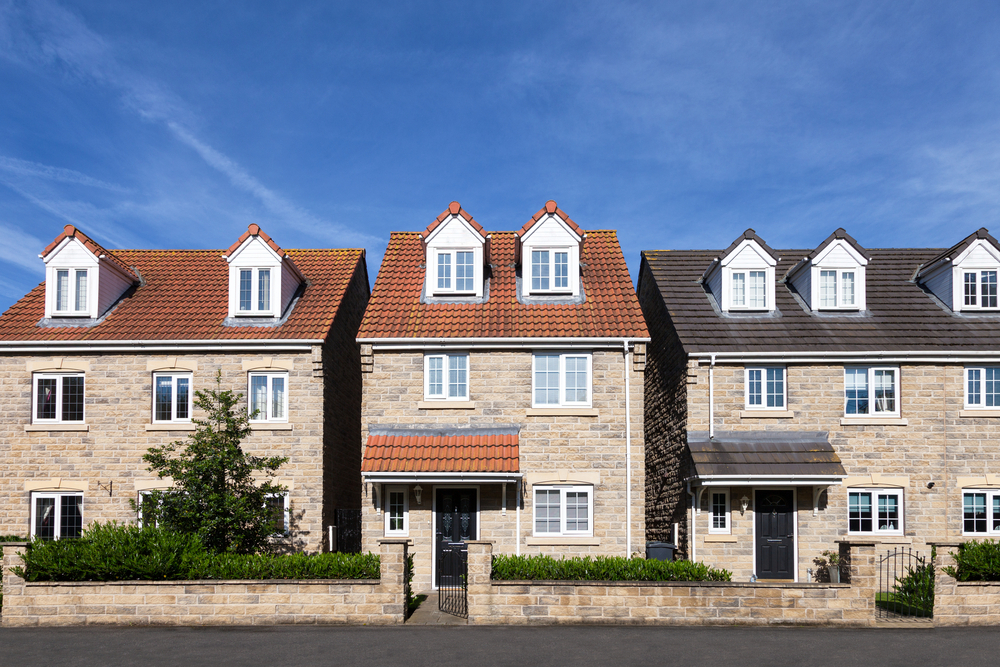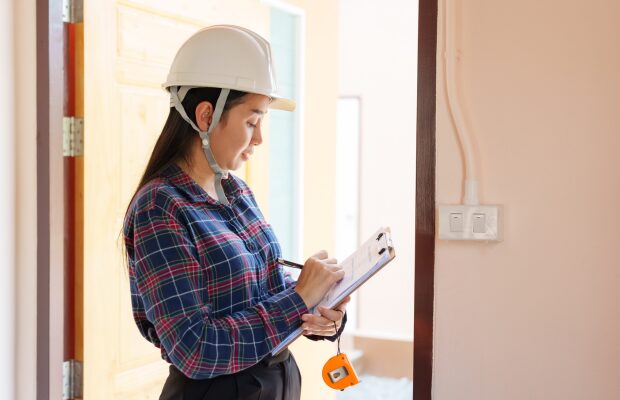As a first-time buyer, choosing between a starter and a forever home can be difficult. After all, there are compelling benefits for each and your decision will depend on a number of other factors. Our guide explores the pros and cons to help you decide which is best for you.
What’s the difference between a starter and a forever home?
As the names suggest, a starter home is a property you buy with the aim of staying for a few years before you sell and move somewhere new.
Typically, these are smaller and more affordable from the outset, making them more accessible to first-time buyers who have yet to build up the equity needed to put down a significant deposit for anywhere larger.
A forever home, however, is a property that will suit you at every stage of your life. It will either have the rooms needed for your household to grow, or enough space to expand into as and when you need.
What is considered a starter home?
When you think of a starter home, chances are you’re visualising something small and perhaps in need of some updates. These aren’t necessarily mutually exclusive; lots of starter homes will in fact need both, especially at the less expensive end of the market.
What is considered a forever home?
A forever home will typically have everything you need now and for the years ahead. For many, this will be ample space to grow into, a garden and perhaps more than one toilet.
A forever home is usually – although not always – a house rather than a flat and there are reasons for this, beyond the available space. Houses are typically freehold and have no service charge, protecting you from unexpected expenses.
As with a starter home, a forever home won’t necessarily be move-in ready. Chances are there will be home improvements that you’ll need to make over the years, however this shouldn’t deter you from buying a forever home.
The pros and cons of a starter home
Pros
-
Starter homes are usually cheaper: This will allow you to buy it sooner, saving you rent and giving you more time to build up equity in the property.
-
It’ll help you to decide what you really want in a forever home: No one knows exactly what they want from their perfect home. Is size more important than location? How important is a garden to you? A starter home will give you time to decide.
Cons
-
Moving is expensive: With stamp duty, estate agent fees and conveyancing costs, moving home can be expensive. When you buy a starter home, you’re setting yourself up for at least one more move in the future. Are you prepared for that?
-
You’ll have to be careful with your home improvements: Every home improvement or décor decision will be made to add value to your property, with the view of some day selling. With a starter home, you may be put off making any major changes.
Starter home: FAQs
How long should you stay in a starter home?
Moving home can be expensive so you should never buy a home unless you’re willing to stay put for at least two to three years or more.
This way, the equity you make will cover the expense of moving, helping you to make the most profit from your sale.
When is a starter home the best choice?
Starter homes can be a great option if you’re living alone or with one other person – whether that’s a partner, friend or lodger.
How big are starter homes?
Starter homes come in all shapes and sizes. That said, they’re more likely to have two bedrooms or fewer, and are more likely to be flats or maisonettes.
Is it better to wait or buy a starter home?
Your decision to buy your first home will ultimately depend on your own financial – and emotional – situation, as well as the market at large. If you feel ready to put down roots and have saved up a reasonable deposit, by all means start your property search.
However, you should always talk to a qualified mortgage broker ahead of your search to find out what kind of mortgage you’ll be offered, and whether you can comfortably afford the repayments.
The pros and cons of a forever home
Pros
-
You won’t have to move again for the foreseeable future: Moving is a hassle, not to mention expensive.
-
You’ll have room to grow: Whether it’s the number of people living in your home, your possessions – or perhaps both! – a forever home will afford you ample space to expand into.
Cons
-
There’ll be compromises: Unless you have a very healthy deposit, chances are your first home won’t have everything on your wish list. Sure, your budget may be able to stretch to a house but you may have to renovate or refurbish at a later date to get all the liveable space you need.
-
Your view of a forever home may change: Before you buy your first home, it can be difficult to know what to look for in a forever home. You may think that location trumps size at first, only for this to change once your household grows.
Forever homes: FAQs
What to look for in a forever home?
Your definition of a forever home will be very different to another person’s. What you require from your property for the years ahead will depend on whether you want a partner, children, dogs, cats – or all of the above!
Perhaps location will define your forever home. You may decide that you can only live in – or out – of the city for the foreseeable.
Get in touch with your local branch now to find out how we can help with finding a home based on your needs.
How do you choose a forever home?
You may have a list of must-haves and deal-breakers but the truth is, when you find your forever home, you’ll just know.
The feeling is impossible to quantify but shouldn’t be ignored. Remember, this is a space that you intend to stay for years, or even decades. It has to feel right.
Can your forever home be your first home?
There are no hard or fast rules when it comes to buying property. Perhaps your career or personality dictates a move every few years? Or maybe you just want to move once and be done with it?
The good news is that we can help, whether your first home is for keeps or simply a rung on the property ladder.
Starter home or a forever home: the best choice for you
Are you a first-time buyer? Get in touch with your local branch now to find out how we can help with your move.








